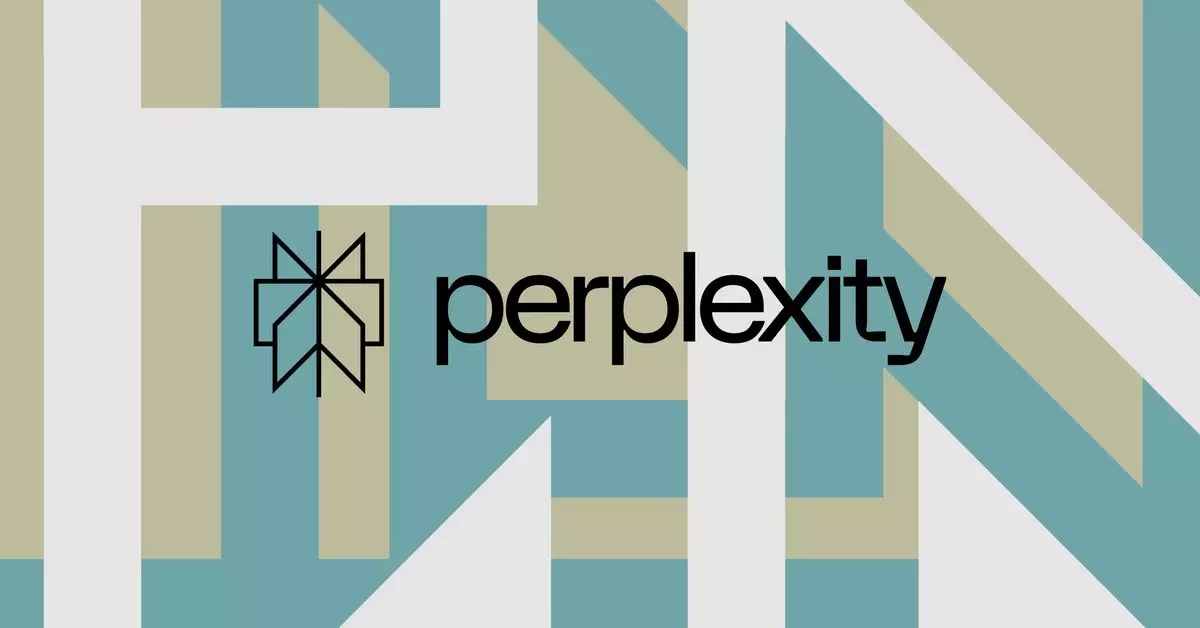The intersection of artificial intelligence (AI) and intellectual property is rapidly evolving into a battleground, with various players from the tech industry and traditional media at odds over the ownership of information. The recent lawsuit filed by News Corp against AI startup Perplexity is emblematic of the broader tension between these two realms. As both sectors grapple with the implications of technological advancements, understanding the nuances of this legal conflict is crucial to navigating a future where facts and creativity coexist.
Perplexity is maneuvering through a storm of allegations stemming from claims that it has scraped content from various news organizations, notably News Corp, without authorization. This lawsuit is framed as a defense of the intellectual rights of journalists and publishers, whose work forms the backbone of the information ecosystem. News Corp contends that Perplexity’s AI search engine is guilty of ‘massive’ content copying, threatening the livelihood of writers and the integrity of news media. In stark contrast, Perplexity’s stance insists that the dispute revolves around the ownership of publicly available facts, arguing that no corporation has exclusive rights to such information.
The crux of the issue lies in the differentiation between facts and the creative expressions of those facts. While copyright law offers protection to the way information is presented, it does not extend that protection to the facts themselves. This theme underlines a philosophical debate over whether facts should be commodified or freely shared, especially in an increasingly interconnected digital landscape.
In a blog post, Perplexity described the litigation from News Corp as “self-defeating” and reflective of a wider issue: an “adversarial posture” between the media industry and technology sector. The company’s position is anchored in the belief that creating a collaborative environment would yield better outcomes than legal confrontations. They highlight efforts to foster partnerships with other publications like Time and Der Spiegel, aiming for revenue-sharing models that could mutually benefit both AI development and journalism.
Moreover, Perplexity argues that the claims made by News Corp are “misleading at best,” suggesting that rather than engaging in heavy-handed legal approaches, media companies could embrace the innovative potentials that AI presents. This indicates a willingness from Perplexity to find cooperative avenues and enhance the relationship between tech firms and content creators.
In response, News Corp has maintained a hardline approach, with CEO Robert Thomson criticizing Perplexity for allegedly violating intellectual property rights. Thomson describes the situation as a form of intellectual “abuse,” claiming that the AI firm shamelessly presents repurposed material as original content. The statement underscores a fundamental concern for the preservation of journalistic integrity and compensation for original creators.
News Corp’s insistence on pursuing legal action rather than negotiation suggests a deeper anxiety about the implications of unchecked AI capabilities. Their perspective emphasizes that allowing AI systems to operate without stringent guidelines risks creating a “content kleptocracy,” undermining the foundational role of journalists and writers within society. The assertiveness of this stance highlights a fear that the value of creativity may be diminished under the weight of technology’s relentless capability to replicate and reframework existing content.
The ongoing dispute raises critical questions about the future of AI and its regulation vis-à-vis intellectual property. As companies like Perplexity explore innovative uses for AI while addressing copyright concerns, the need for comprehensive legislation that reflects the changing dynamics of information sharing becomes increasingly apparent. Collaboration between tech and media industries could pave the way for frameworks that respect both the rights of creators and the transformative potential of AI.
The conflict between Perplexity and News Corp underscores a larger conversation about the intersection of technology and journalism. It is clear that as AI technology continues to evolve, a balance must be struck to ensure that the principles of creativity and ownership are respected. A forward-thinking dialogue is essential to foster an environment where both innovation and integrity are maintained in the pursuit of knowledge.

